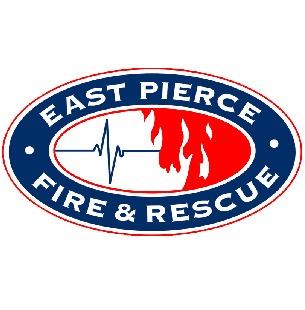In May, East Pierce Fire & Rescue received the American Heart Association’s Mission: Lifeline® EMS Silver Award for implementing operational and quality improvement procedures that expedite treatment of patients who experience severe heart attacks.
Every year, more than 250,000 people nationwide experience a STEMI, or ST Elevation Myocardial Infarction, a type of heart attack caused by a complete blockage of blood flow to the heart. To prevent death, it’s critical to restore blood flow as quickly as possible, either by surgically opening the blocked vessel or by giving clot-busting medication.
Fortunately for the more than 88,000 citizens served by East Pierce Fire & Rescue—including those living in Bonney Lake, Sumner, Lake Tapps, South Prairie, Edgewood, Milton and the unincorporated area of Buckley—the firefighter-paramedics and firefighter-EMTs work closely with Good Samaritan Hospital as part of a comprehensive emergency cardiac care system. “This system benefits the 20-30 district residents who have a STEMI-type of heart attack each year, as well as those who experience other cardiac conditions,” said East Pierce EMS Chief Russ McCallion.
East Pierce was recognized for its early use and interpretation of 12-lead ECGs, which can determine if a heart attack is occurring, and for following protocols derived from national guidelines. The correct tools and training allow firefighter-paramedics to rapidly identify a STEMI patient and alert Good Samaritan that an incoming patient will need immediate treatment in a cardiac lab. This gives the hospital time to assemble a specialized cardiac team to treat the patient.
“EMTs and paramedics play a vital part in the system of care for those who have heart attacks,” said Nancy Brown, Chief Executive Officer of the American Heart Association/American Stroke Association. “Since they often are the first medical point of contact, they can shave precious minutes of life-saving treatment time. We applaud East Pierce for achieving this award that shows it meets evidence-based guidelines in the treatment of people who have severe heart attacks.”
“While East Pierce is working hard with its partner Good Samaritan to decrease the time to care for STEMI heart attack patients, many patients still wait hours before calling 9-1-1 with heart attack symptoms—such as unexplained chest pain or discomfort, shortness of breath, dizziness or sweating,” McCallion said. “When in doubt—check it out and call 9-1-1.”


